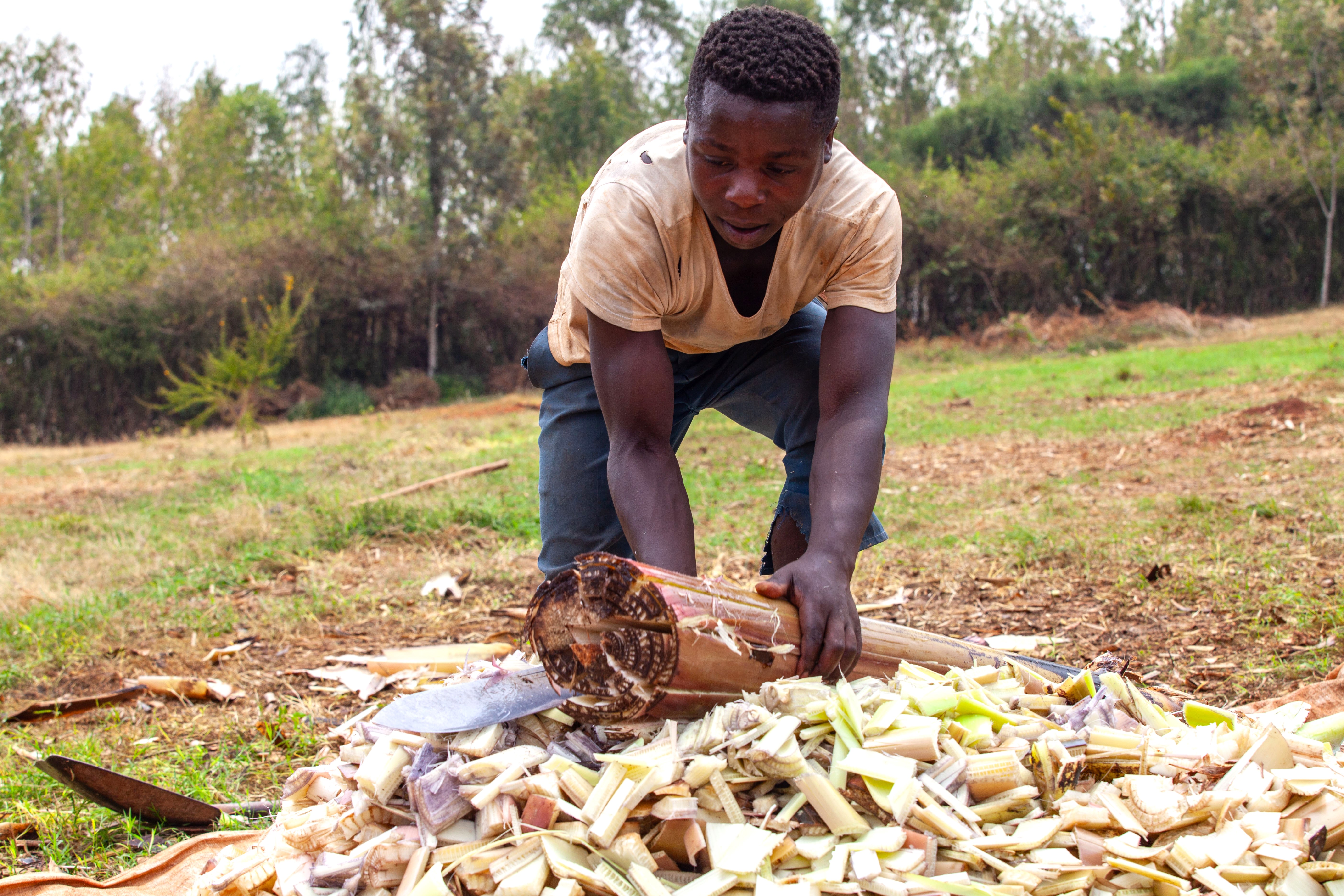Elim Farm
Elim is an extensive and picturesque farm in the north of Rwanda which is seeking to increase food security and sustainability, while reducing waste. Alphonse Kizihira, the founder of the farm estimates that up to a quarter of food that is harvested is lost, often as a result of inadequate storage, pests, or high temperatures. Alphonse hopes to reduce that loss by finding innovative ways to transform crops into longer-lasting products.
Elim farm includes 10 hectares of banana plantations, 19,000 coffee trees, many of which are intercropped with the banana trees to enhance growth, 7 hectares of mangoes, 1.5 hectares of macadamia trees, and 3 hectares of forest, with the remaining land growing beans and maize. They also have 40 beehives, 20 modern and 20 local, which, combined produce approximately 80kg of honey per month.
From agroforestry to intercropping, Elim Farm is practicing conservation agriculture techniques to support healthy yields without damaging the soil. They are also embracing aspects of circularity, including the reuse of cow and pig manure to create compost. They have found multiple uses for maize waste, including being ground into animal feed or used to support compost production.
Despite these innovations, the farm continues to have challenges: acquiring a consistent water supply for their crops - they are currently working on repairing their faulty irrigation system - and better, more sustainable energy solutions. Alphonse hopes that CIRF technical training and assistance will enable Elim to explore biogas and other energy opportunities.
They are also seeking to strengthen market links, increase sales, and investigate value addition opportunities for less waste and more income.
Elim Farm has employed 5 staff and has between 45-50 casual workers on a daily basis.

